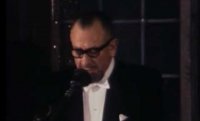Audible, Inc., and the New York City–based Center for Fiction have teamed up to create a new literary prize. The Christopher Doheny Award, given for an unpublished book of fiction or nonfiction on the topic of serious illness, will include a $10,000 prize, publication, and promotion of the winning book in print and audio editions.
The award was established in memory of Christopher Doheny, a long-time Audible employee who died of cystic fibrosis in February at the age of thirty-one.
“Supporting writers and literature is the most fitting tribute to Chris, a writer himself who loved reading, discussing, and working with good books,” said Beth Anderson, EVP and publisher of Audible.
“We are pleased to be able to honor Chris, while helping to support some excellent writers working on promising manuscripts,” added Center for Fiction executive director Noreen Tomassi.
Writers who have previously published work in literary journals or magazines, or who have published a book with an independent or traditional publisher, are eligible to enter. Both adult and young adult manuscripts are eligible. Writers may submit a completed manuscript and synopsis or two sample chapters of a work in progress and a book proposal, along with a bibliography, a brief bio, and contact information by July 31. Visit the website for complete submission guidelines.
Manuscripts will be judged by a panel of three distinguished writers chosen by the Center for Fiction and a representative of Audible. Writers are encouraged to contact dohenyaward@audible.com for more information.
“We hope that this prize will help talented writers who may be battling chronic or fatal disease tell their important stories,” said Dana Doheny, Chris’s mother.
A subsidiary of Amazon, Audible, Inc., provides audiobooks for a host of digital and mobile platforms. The Center for Fiction, the only nonprofit literary organization in the United States devoted solely to fiction, offers writing classes, an expansive library, and a variety of events, awards, and fellowships for writers in New York City. The Center is also accepting monetary donations to the Chris Doheny Award; visit the website to find out how to contribute.









